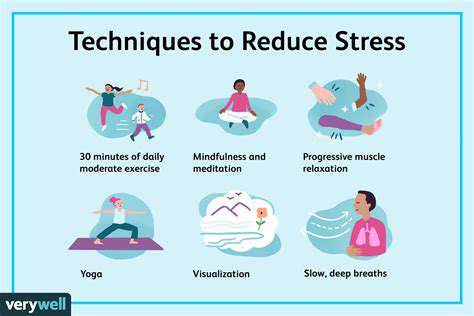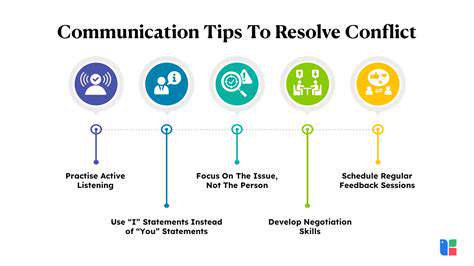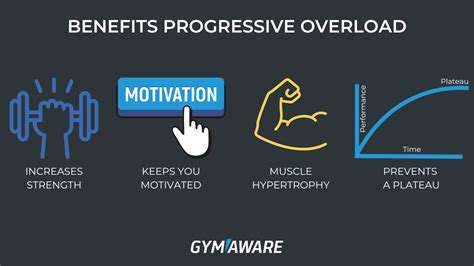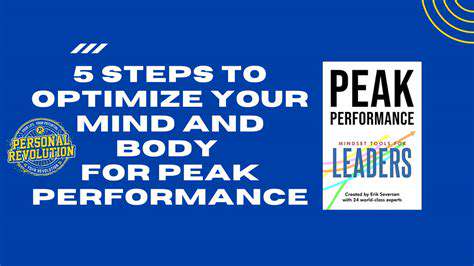Guide to Cultivating Patience in Daily Life
Understanding what situations, emotions, or thoughts trigger your negative reactions is crucial for developing healthy coping mechanisms. Identifying these triggers allows you to proactively prepare for challenging situations and anticipate potential emotional responses. This self-awareness is the first step in managing your reactions in a more constructive way.
The Long-Term Benefits of Practicing Patience
Understanding the Essence of Patience
Patience, often perceived as a passive virtue, is actually a powerful active force. It's not about simply waiting, but about navigating challenging situations with composure and a thoughtful approach. Cultivating patience involves recognizing the value of time and understanding that progress, whether personal or professional, rarely happens overnight. It's about embracing the journey and appreciating the process itself.
True patience goes beyond mere toleration. It's about accepting delays, setbacks, and frustrations without succumbing to negativity or anxiety. This mindful approach allows for a deeper understanding of oneself and the world around us, fostering a more resilient and adaptable character.
Patience and Emotional Regulation
Patience is intrinsically linked to emotional regulation. When faced with stressful situations, a patient response allows us to manage our emotions effectively. Instead of reacting impulsively, we can take a step back, assess the situation, and respond thoughtfully. This ability to control our emotional responses reduces stress levels and promotes a more positive outlook on life.
Practicing patience equips us with the tools to navigate difficult conversations and challenging interpersonal dynamics with grace and understanding. It allows us to respond to conflict with empathy and composure, fostering healthier relationships and more productive interactions.
Patience and Improved Focus
Patience promotes focused attention. When we're patient, we're less likely to be distracted by immediate desires or anxieties. This allows us to concentrate on the task at hand, leading to improved productivity and efficiency in various aspects of life.
Constantly rushing or seeking instant gratification often leads to decreased focus and poor decision-making. Patience, by contrast, cultivates a mindful approach to work and daily tasks, allowing for better concentration and a greater understanding of the project or goal.
Patience and Stress Reduction
The practice of patience is a powerful tool for stress reduction. Instead of reacting to every perceived obstacle with anxiety, a patient approach allows us to view challenges as opportunities for growth and learning. This shift in perspective can significantly reduce stress levels and promote a more positive outlook.
By accepting that things may take time, we reduce the pressure to achieve results immediately. This allows for a more relaxed and less stressed approach to life, fostering a sense of inner peace and contentment.
Patience and Problem-Solving Skills
Patience paves the way for more effective problem-solving. When we're patient, we're more likely to take the time to analyze situations thoroughly before jumping to conclusions. This thoughtful approach often leads to more creative and effective solutions that address the root cause of the problem.
Rushing to find a solution often leads to superficial fixes that don't tackle the underlying issues. Patience allows for a deeper understanding of the problem, leading to more sustainable and long-lasting solutions, in all areas of life.
Patience and Increased Self-Awareness
Patience fosters a deeper understanding of ourselves. When we're patient with ourselves, we allow ourselves to make mistakes and learn from them without judgment. This self-compassion is crucial for personal growth and development.
Patience and Improved Relationships
Patience is fundamental to building and maintaining healthy relationships. By understanding that others may have different perspectives and timelines, we can approach interactions with empathy and understanding. This fosters trust and respect, creating stronger and more meaningful connections with those around us.
Patience in relationships involves listening actively, understanding different viewpoints, and responding with kindness and consideration, all of which contribute to a more supportive and enriching social environment.
Read more about Guide to Cultivating Patience in Daily Life
Hot Recommendations
-
*Guide to Managing Gout Through Diet
-
*Best Habits for Financial Well being
-
*How to Build a Routine for Better Mental Health
-
*How to Eat Healthy on a Budget [Tips & Meal Ideas]
-
*Guide to Practicing Self Acceptance
-
*How to Incorporate More Movement Into Your Day
-
*Guide to Managing Chronic Pain Naturally
-
*Guide to Building a Reading Habit for Well being
-
*Top 5 Weight Loss Supplements That Actually Work
-
*Best Exercises for Postpartum Recovery [Beyond Abdominal Work]



![Guide to Training for a Triathlon [Beginner Plan]](/static/images/26/2025-05/Running3ALayingtheGroundwork.jpg)

![Best Snacks for Diabetics [Approved List]](/static/images/26/2025-05/HealthyFatsandComplexCarbohydrates.jpg)





